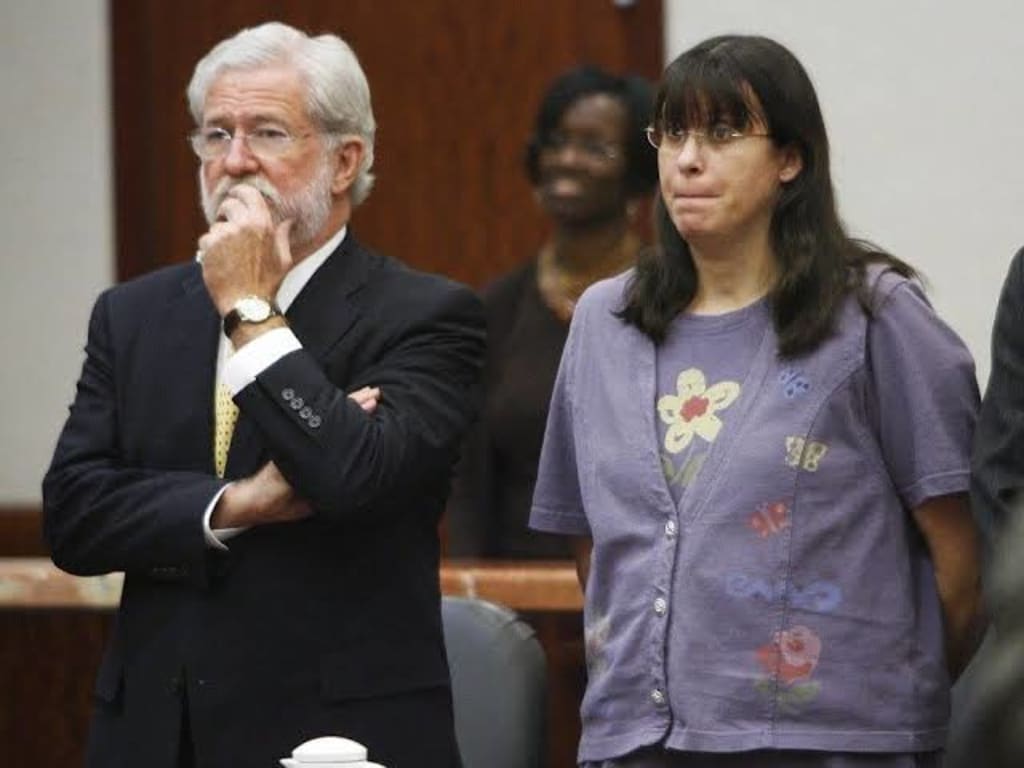Andrea Yates, The Texas Woman Who Drowned Her Kids
Issue about insanity and the law

n June 20, 2001, a suburban Texas home became the site of one of the most heartbreaking tragedies in recent memory. Andrea Yates, a mother of five, made headlines around the world when she drowned her children one by one in the family bathtub. The shocking nature of the crime left many grappling for answers, but as the details emerged, it became increasingly clear that this was not a simple case of criminal intent, but rather a tragic manifestation of severe mental illness.
Andrea Yates was not a stranger to the complexities of mental health. She had a long history of debilitating psychiatric issues, including postpartum depression, psychosis, and suicidal ideation. In the aftermath of her heinous act, it became apparent that her mental state had deteriorated significantly in the weeks leading up to the tragedy. Despite her struggles, her condition went largely untreated, leaving her isolated and overwhelmed by the demands of motherhood.
Due to insanity, the defense has submitted a not guilty plea. However, Charles Rosenthal Jr., the district attorney for Harris County, feels that the woman is fit to stand trial following three months of antipsychotic medication and therapy in the jail's mental ward. In a county that leads Texas in the number of death row inmates and a state that leads the country in executions, he is requesting the death penalty. Assistant District Attorney Joe Owmby informs the jury comprised of 11 women and 1 man that the main issue at hand in this competency hearing is whether or not "Yates is rational today—not was she rational at the time of the crime."
The events of that fateful day sent shockwaves through the community and ignited a firestorm of debate about the intersection of mental illness and the legal system. In the eyes of many, Andrea Yates was not a cold-blooded killer but a victim herself – a casualty of a broken mental health system that failed to provide her with the care and support she so desperately needed.
As the case unfolded, it became clear that Andrea Yates was not a malicious or calculating criminal, but a deeply troubled woman who had reached her breaking point. Her actions, while unfathomable to most, were the tragic result of a mind ravaged by illness and despair. Yet, despite overwhelming evidence of her mental instability, the legal system grappled with how to hold her accountable for her actions.
In 2002, Andrea Yates was convicted of capital murder and sentenced to life in prison. However, her conviction was later overturned on appeal, and in 2006, she was retried and found not guilty by reason of insanity. The verdict sparked intense debate and raised important questions about the adequacy of mental health care in the criminal justice system.
The case of Andrea Yates serves as a stark reminder of the devastating consequences of untreated mental illness. It highlights the urgent need for improved access to mental health services and greater awareness of the warning signs of psychiatric distress. It also underscores the importance of compassion and empathy in our approach to those struggling with mental health issues.
In the years since the tragedy, efforts have been made to reform the mental health care system and improve support for individuals in crisis. But the story of Andrea Yates remains a haunting reminder of the work that still needs to be done. Her children, who were tragically taken from this world far too soon, serve as a sobering reminder of the human cost of untreated mental illness.
As we reflect on this heartbreaking chapter in our history, let us not forget the lives that were lost and the suffering endured by all those affected. Let us honor their memory by working tirelessly to ensure that no one falls through the cracks of a broken system again. And let us strive to create a world where compassion and understanding prevail, even in the face of unimaginable tragedy.






Comments
There are no comments for this story
Be the first to respond and start the conversation.